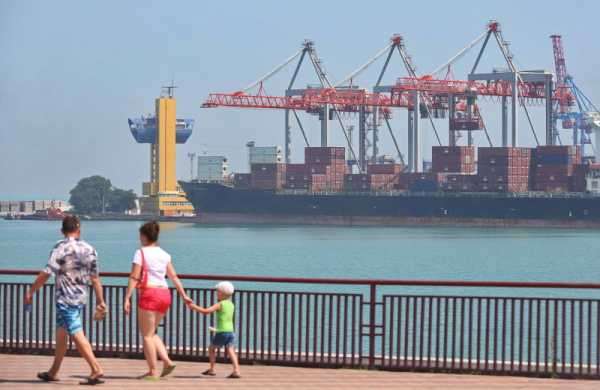It is no secret that Ukraine has a serious money laundering and tax evasion problem.
Experts have estimated that erosion of the tax base and offshore profit shifting may amount to as much as $40-50 billion in losses to state coffers each year.
Now, a new trade fraud report published on March 3 by the Washington-based Global Financial Integrity (GFI) organization sheds light on another aspect of illicit capital flight from Ukraine.
GFI research on Ukrainian trade in 2008-2017 has found $14.8 billion worth of alleged trade fraud.
Researchers say that faked business deals and misinvoicing in trade are being used to illegally shift money offshore or steal it outright.
The GFI non-profit organization, which focuses on advocacy and research into illicit financial flows, has just finished a worldwide investigation into trade-related fraud across 135 developing countries and 36 major economies.
It reveals trillions of dollars’ worth of illicit capital flowing around the world.
GFI researchers categorized, analysed and compared data from the past decade. They looked at trading partner data, commodities traded, regional business figures and the percentage of total trade, among other indicators.
Analysts look for something called a value gap in comparing the data. These gaps demonstrate that import under-invoicing or export over-invoicing are taking place to facilitate fraud and indicate how and where they are happening.
Over the ten-year period of 2008-2017, GFI says it identified $8.7 trillion worth of suspicious value gaps from 135 developing countries and 36 advanced economies.
“Our research indicates trade misinvoicing, or trade fraud, is a major type of illicit financial flow and can be used to launder money, evade taxes and currency controls, among other illicit activities,” the authors write.
In Ukraine, GFI concluded that almost 20% of import and export trade over the last decade has been illicit or fraudulent.
“Our research found that on average over 10 years, the average rate of trade misinvoicing for Ukraine as a percent of total trade with all its global trading partners was 19.9%,” wrote GFI spokesperson Maureen Heydt in an email to the Kyiv Post.
“(It is) equal to about $14.76 billion. This is the value that has been illicitly moved through Ukraine’s trade, and as a result, has not been properly taxed by the respective authorities… meaning the amount of trade that is going undetected and untaxed is equal to nearly a fifth of all Ukrainian trade,” Heydt added.
Other countries seem to have an even bigger problem. The developing countries with the largest annual average value gaps, according to GFI, are China ($323.8 billion), Mexico ($62.9 billion), Russia ($56.8 billion) and Poland ($40.9 billion).
“Trade misinvoicing has a far greater negative impact on the finances of developing economies,” states the report. “It constitutes one the world’s most serious global challenges for successfully achieving sustainable development goals in developing countries.”

